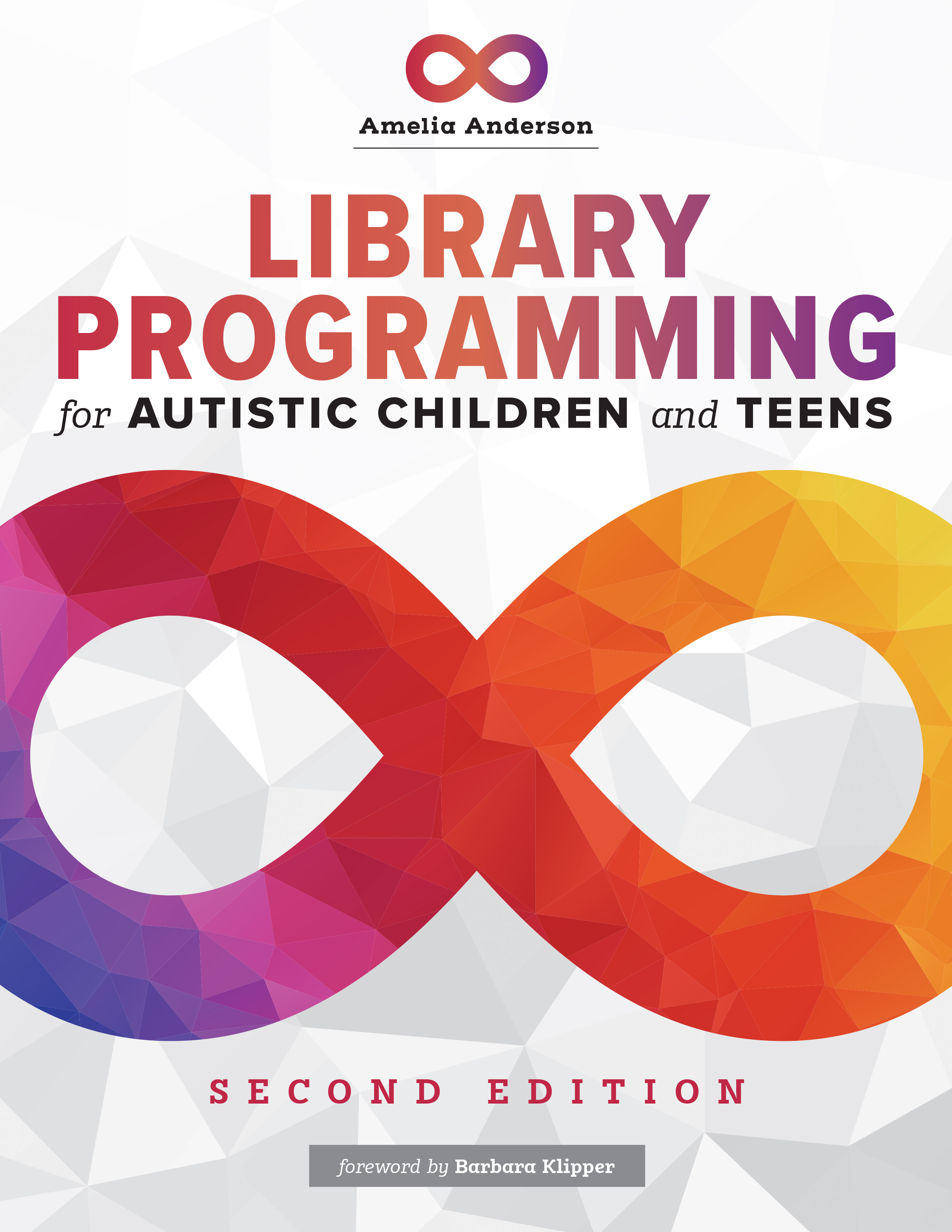How Are You Celebrating Autism In Your Libraries In April?
a guest post by Amelia Anderson
 Since first coined in the 1970s, “Autism Awareness Month” has traditionally been celebrated every April. A recent shift to “Autism Acceptance Month” demonstrates a more proactive, inclusive focus on celebrating differences rather than simply being “aware” that autism exists.
Since first coined in the 1970s, “Autism Awareness Month” has traditionally been celebrated every April. A recent shift to “Autism Acceptance Month” demonstrates a more proactive, inclusive focus on celebrating differences rather than simply being “aware” that autism exists.
In libraries, we are always happy to have inspiration for a timely book display, or to plan a program around a relevant event. Autism Acceptance Month is no exception. A quick search online indicates that many of us are planning exciting programs, developing book lists, and curating online content to celebrate autism in April.
But how can we ensure that what we’re doing is actually being done to celebrate our autistic patrons and staff? In reality, some autistic individuals dread April for various reasons: they feel that inaccurate information is shared about autism, they feel that unworthy organizations receive too much support, and they feel pressure to operate as spokespeople, among other things.
This is not to say that libraries should stop celebrating! Instead, we need to be mindful that the content and services we promote are respectful and reputable. Instead of directing patrons to organizations that historically have not centered autistic voices, start by featuring resources such as the Autistic Self Advocacy Network (ASAN) and the Autistic Women & Nonbinary Network (AWN).
We also need to ensure that the language we use is in alignment with the language autistic people use themselves. While this is a complicated issue, one place to learn more about language is the Autistic Self Advocacy Network’s website, which features a blog post from Lydia Brown originally titled The Significance of Semantics: Person-First Language: Why it Matters.
Libraries interested in featuring books about autism during the month of April should turn to autistic authors and autistic-centered narratives first. The Ed Wiley Autism Acceptance Lending Library is a great place to start, as are the varied book lists developed by “Not an Autism Mom.” There, you’ll find tailored lists for autistic adolescents, teens, and tweens; autistic adults exploring their autistic identity; inclusive children’s books on autism and neurodiverity; autism positive books for teachers to read during April, and more.
Libraries need to celebrate not just our autistic patrons but our autistic workforce, as well. Let your autistic and neurodivergent staff members contribute to or take the lead on Autism Acceptance Month initiatives, but only to the extent that they desire. Don’t make this another task for them that their coworkers are exempt from. Some may want to play a major role in shaping such initiatives, but others may feel burned out from the idea of the month itself, may not wish to disclose beyond their immediate supervisors, or simply may not want to expend the extra energy in contributing to additional projects. Make room for contributions, or play a supportive role as a neurotypical ally, but never, ever, require participation.
Finally, if you are autistic or neurodivergent yourself, think about how you want to contribute, or if you would rather protect your time and your spoons this month. I am hopeful that your administration (especially if they are reading this post) will be understanding either way.
Making the conceptual shift from Autism Awareness to Autism Acceptance Month is critically important, and so doable! I can’t wait to see how you will implement these ideas in your libraries.
